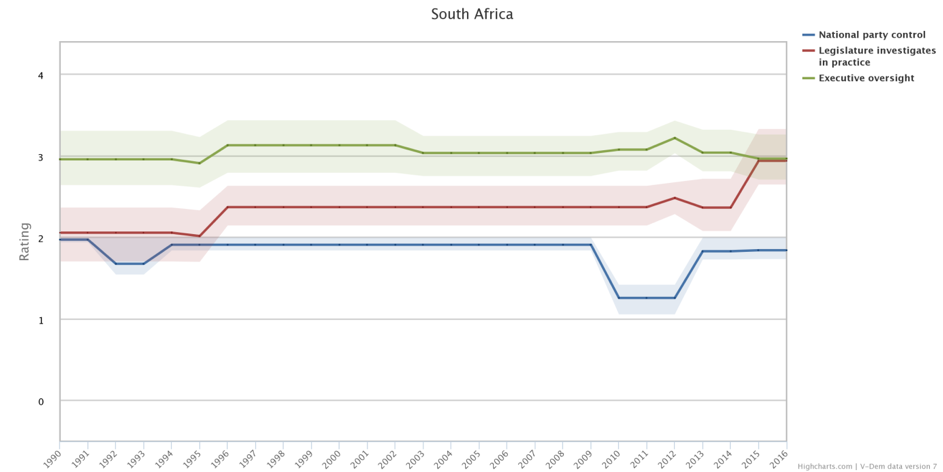South Africa's ruling party Jacob Zuma resigned
By: V-Dem Staff
Mar 12, 2018
After days of resisting orders from the African National Congress (ANC), South Africa’s ruling party, Jacob Zuma resigned from office on February 14. Zuma’s resignation came one day before the calling for a vote of no-confidence in the National Assembly. It indicates that his involvement in corruption scandals have finally exhausted the ANC’s support for the former president.
This week’s graph analyzes the relationship between the South African legislative and executive powers. V-Dem’s indicator on investigation in practice measures how likely a legislative investigation would result in unfavorable decisions to the executive. It ranges from 'extremely unlikely' to 'certain' as the figures increase. The indicator on Executive oversight exerted by another body rather than the legislature is determined on the same scale as the previous indicator. Lastly, unified party control is assessed through a three point scale, where higher values mean national government control by a single party.
The ANC has been exerting control in South African politics ever since the end of apartheid. It holds a majority in both chambers of the parliament, thus being responsible for electing the president. Such control can be perceived through the high scores on the national party control indicator. Oscillation during 2009-2012 might result of the party's loss of majority in the parliament's lower chamber in this period. Executive oversight and legislature investigation stable trends point out to legislative and governmental agencies being able to question and investigate the executive. However, since the ANC still exerts control over the parliament, its powers over the executive seem to reflect the party’s own interests, shielding Zuma from accusations only until it was convenient.
If you want to learn more about the legislative and executive powers in South Africa, use our online analysis tools at v-dem.net.


